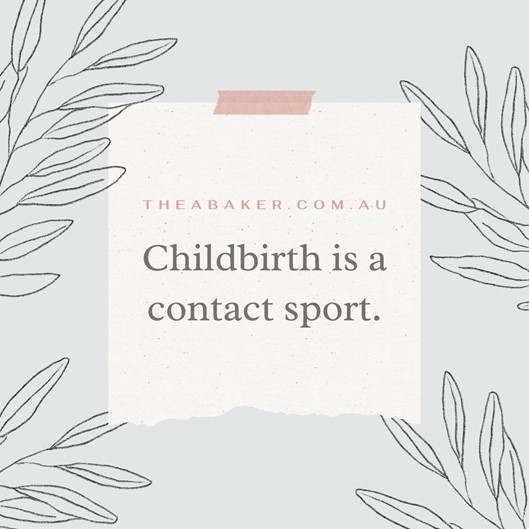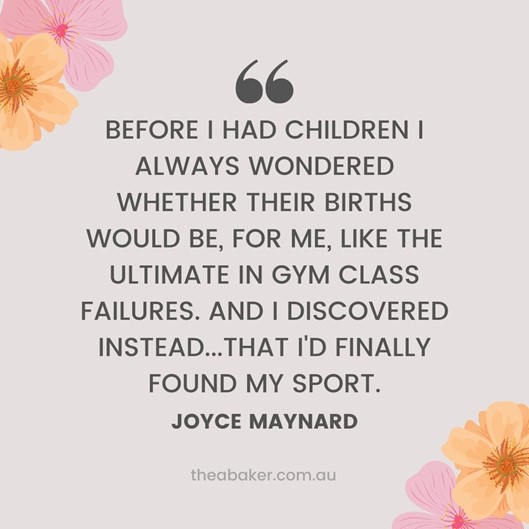Childbirth is a contact sport
Childbirth is a contact sport.
I am writing this blog with the honour of nearly 16 years’ worth of hindsight.
My firstborn child had to be induced as she decided that almost 42 weeks of hanging out in my (clearly very comfortable) womb-hotel, wasn’t sufficient so she had to be nudged along! She would arrive after less than six-hours of very fast labour which, with the distinct lack of wisdom that comes with first-time motherhood, saw me push her out in literally two attempts. (My eyes still smart when I recall that burning pain.)
Along with Martha’s unnecessarily dramatic arrival earth-side, came a second-degree tear that proved to be quite an irritating addition to my postpartum recovery.
In retrospect, with at least 10 years’ worth of work as a specialist Personal Trainer, Women’s Health Coach and Women’s Health Counsellor, and more professional development hours than you could imagine, I consider myself incredibly fortunate to have come out of birthing two children vaginally with so little damage.
I have worked with countless women who have experienced far worse and many, many more who believe that they should be bouncing-back to their pre-baby bodies (a term I literally come out in a rash typing) working out, sweating, lifting and dieting to achieve merely six weeks after what for many was the workout of their lives.
Regardless of how your baby is born (a debate I am absolutely not engaging in) your body will suffer a variety of torn, strained, bruised and damaged muscle and connective tissue. And that’s if everything went well!
Vaginal tears like mine are incredibly common. Up to 90% of women experience some degree of tear during childbirth and is especially common for first-time vaginal deliveries (Burnley Institute, 2019).
Whilst women who have caesarean section deliveries avoid perineal and vaginal tears, they do undergo significant abdominal surgery in order to birth their babies. Most of these women’s pain will settle between three and six months postpartum, however approximately 11% of women will continue to have wound pain for at least 12 months (Weibel et al., 2016).
For many women childbirth results in physical trauma that for many isn’t identified immediately. It can include:
- Continuing pain around the site of a tear or episiotomy
- Urinary or faecal incontinence
- Fistula
- Pain / difficulty having sex
- Constant lower back pain
- Pelvic floor / vaginal muscle laxity / injury
- Pelvic organ prolapse
The effects of some of these injuries can be lifelong and life-altering.
I wonder now, surrounded by teenagers, what the rush is all about. Why, after working so hard to conceive, carry and birth our children, do we feel the need to compress our recovery into the shortest amount of time imaginable? What if we just put that enormous bag of pressure down and busied ourselves with the psychological and practical adjustments to motherhood? What if we knew that our bodies really would thank us in the long-term if we allowed them a full and considered recovery? You know, the kind of recovery we could permit ourselves if we had undergone a hip replacement or open-heart surgery.
We have so much time. Our bodies need us to take our time recovering from birth. Seek out awesome support in the shape of pelvic health physiotherapists to give your pelvic floor a postpartum bit of love, GP’s who spend as much time attending to your needs as they do your newborn, a perinatal counsellor, psychotherapist or psychologist to talk through your birth and WHEN YOU ARE READY a properly educated and trained fitness professional to help you move your new postpartum body.
If you are struggling to navigate the after-effects of your birth, there are a number of websites I encourage clients to access:
If you know you need to talk to someone about your birth experience, I’d love to help. Please email me at hello@theabaker.com.au or call 03 9077 8194.


